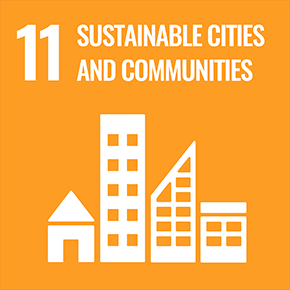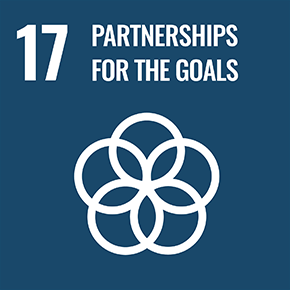
Synopsis
In order to encourage the SDGs initiatives of businesses and civic groups in and outside Yokohama, the Y-SDGs evaluates their efforts based on 30 items in four areas, and certifies them as “Supreme, Superior, or Standard.” The system aims to create a self-sustaining virtuous circle through utilization for shifting to sustainable management and for investment and financing decisions by investors and financial institutions.
Implementation Period
Since August, 2020
Stakeholders and Partners
Zero Carbon and GREEN×EXPO Promotion Bureau of the City of Yokohama, Yokohama SDGs Design Center, private companies (including financial institutions), NPOs and civic groups, etc.
Background, Challenges and Objectives
Yokohama, with a population of approximately 3.77 million, has a hilly landscape, and many of its residents live in the suburbs. Yokohama is also a developed city facing a variety of challenges, such as securing means of transportation and revitalizing local communities with an aging population of approximately 25.2%. The City of Yokohama has so far implemented initiatives that serve as a model for the rest of Japan, such as addressing environmental issues and the aging of society. The city will continue to reflect the SDGs in its various policies and widely carry them out, aiming to contribute to resolve common challenges for all regions of Japan and the world.
In Yokohama, approximately 1.67 million people work at more than 115,000 business establishments. Many companies with excellent technologies and services, as well as those actively engaged in cutting-edge research and development, are located in the city, and joint research is actively conducted through industry-academia-government collaboration. On the other hand, in a survey conducted in 2021 targeting small and medium-sized enterprises (SMEs), which account for more than 95% of the establishments in the city, only about 15% of the respondents answered that they “conduct management and business activities from the perspective of contributing to the SDGs.” Considering the growing global ESG investment situation and the future direction of GX promotion in Japan, in order to achieve sustainable management in the future, it is imperative for SMEs in the city to promote SDG initiatives including decarbonization.
The purpose of this program is to support sustainable management by certifying and bringing visibility to businesses that are actively working toward achieving the SDGs so that they can be used by financial institutions for loans and investors for ESG investment decisions, as well as by securing human resources and expanding new customers and business partners.
Actions and Implementation
【Applications for certification】
Applications are implemented approximately once or twice each year, and a total of 13 certifications have been conducted (Applications for FY2024: July (13th) (already finished), December (14th).
The City will evaluate and certify 30 items in the four areas of ESG and Local, based on the applicant’s self-check, interviews with SME diagnosticians, and opinions from outside experts.
The city has prepared two types of check sheets, one for companies and the other for various organizations, to ensure that not only companies but also community-based citizen groups and NPOs can be appropriately evaluated for their efforts toward achieving the SDGs.
In order to prevent SDG-washing, interviews will be conducted to include the company’s vision, such as why the entire company or organization is working on the SDGs, and the evaluation criteria for certification may be revised in accordance with the current trends.
The certification period is four years from the month of certification. During the period, it is possible to apply again for a higher level of certification, but in order to prevent easy rank upgrading, sufficient hearings will be conducted to determine which items have changed since the previous application.
In FY2023, a system that automatically accepts applications and has a self-checking function for initiatives was developed. In addition to increasing the number of applications by improving administrative efficiency, the human costs saved by automation will be utilized for consulting on initiatives, leading to further promotion of initiatives by businesses.
【Follow-up with Certified Businesses】
The Design Center provides consultation services as needed for certification applications. In addition, the coordinator provides feedback on the evaluation results to certified companies and offers consulting services on their future efforts, if desired.
To support the promotion of certified businesses, the contents of their business and their initiatives related to the SDGs will be posted on the websites of the City of Yokohama and the Design Center.
Hold a meeting for certified businesses to promote the initiatives of their own companies and organizations and promote matching among businesses.
Provide a menu of support services (training on SDGs initiatives, seminars on decarbonization management initiatives, compliance training, etc.).
“Y-SDGs Financial Task Force” was established in July 2021 with the participation of 13 companies including major financial institutions and regional financial institutions, and it discusses promoting SDGs’ initiatives through the use of the certification system.
Outcomes and Impacts
【Certification Results】
• As of October 1, 2024, a total of 769 entities have been certified (82 Supreme, 161 Superior, and 526 Standard ranked).
• In July 2021, the Y-SDGs Financial Task Force (a consultative body with financial institutions to work toward the achievement of the SDGs and the realization of a decarbonized society) was established.
• In March 2022, the City of Yokohama received the government’s “First Regional Development SDGs Financial Award”.
【Expansion of Benefits to Certified Businesses】
In addition to the aforementioned follow-up with certified businesses, various other benefits have been created and expanded, including points in the city’s bidding system, reduced credit guarantee fees in the support system for SMEs, reduced interest on loans for projects that contribute to the SDGs and decarbonization, and various types of support based on evaluation items.
By providing these benefits, we believe that we can support businesses that are actively working on SDGs and decarbonization and thereby help them achieve sustainable management, revitalize the city economy, and solve regional issues.


